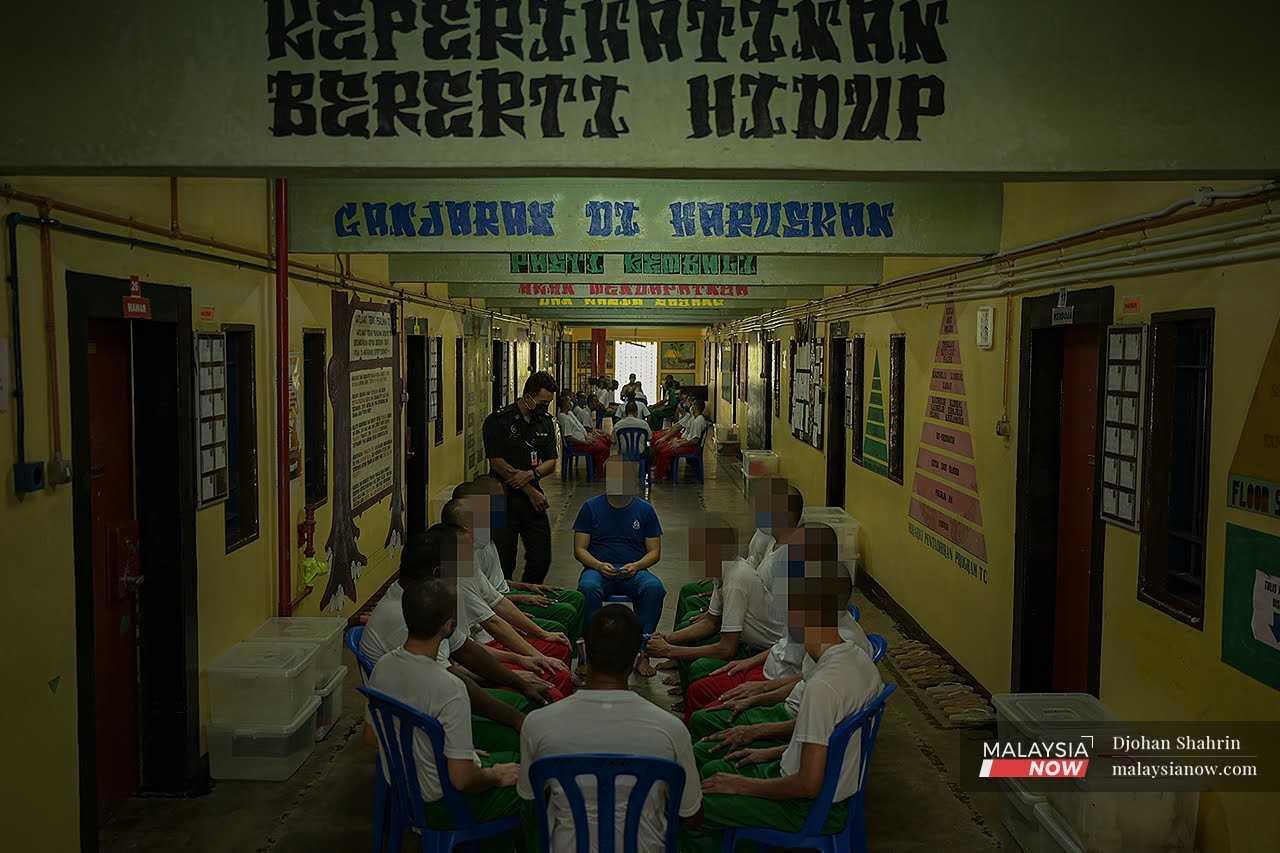Prison, not the end of the line for inmates
Alternative punishments like parole are also possible, while workshops and rehabilitation programmes are part of ongoing initiatives.
Just In
In many developed countries, governments are working to reduce their prison operations and the number of inmates by introducing alternative sentences and boosting efforts to deter crime from a young age.
In Malaysia, though, the trend would appear to be moving in the opposite direction.
In 2022, there were approximately 70,000 inmates at 50 prisons including satellite centres across the country – far above the maximum capacity of 62,000 people.
In terms of prisons alone, Malaysia has 27 – 18 in the peninsula and nine more in Sabah and Sarawak, with plans afoot since 2016 for the construction of more.
Each year, the government spends hundreds of millions of ringgit on the prisons department.
But the department itself is adamant that prison is not the end for those ordered to serve time behind bars.
In 2008, for instance, it introduced a parole system similar to those used in Australia, Canada and the US.
Under this system, prisoners who meet the necessary criteria can be released to serve the remainder of their sentence outside the prison walls.
Their release, based on the conditions set by the parole board, is an extension of the department's rehabilitation programme, dubbed the Human Development Programme.
Some 90% of the inmates in the country are part of this initiative.
Kausalya Devi Sathoo of the Prison Policy Division said the parole system came into effect on June 30, 2008 through amendments to the Prison Act 1995.
"Those imprisoned for offences like theft and burglary can apply for parole," she said in an interview at the prison headquarters in Kajang where MalaysiaNow was granted exclusive access to the prison premises.
"But parole is not granted to those imprisoned for offences under the Fourth Schedule of the Prison Act, such as rape, sodomy, and those on death row."
While the formation and implementation of alternative punishments are outside the scope of the department, she said, it continuously works with the Attorney-General's Chambers to study the execution of such penalties.
In any event, jail terms are not the only punishment meted out through the department as it works with several other institutions to help rehabilitate offenders, including the Henry Gurney School, rehabilitation centres and special detention centres under the Prevention of Crime Act, in addition to the district parole offices.
There is also the possibility of a suspended sentence where the offender is not placed in prison as an inmate.
"Right now there are fewer facilities in prison because only those who truly need to be jailed have to go in," Kausalya said.
"For example, if a mother neglects her children, she is sent to jail. Isn't that difficult for them? Perhaps there will only be a counselling session."
Life of luxury?
The 2020 budget had allocated RM16.9 billion to the home ministry with RM20 million specifically set aside to develop skills training and programmes for prisoners.
In 2021, however, the government spent RM630,480 a month – nearly RM230 million the entire year – just to cover the cost of food for inmates.
Estimating that food rations cost RM12 to RM15 per day, Kausalya said the prison department did need a high allocation for the cost of rehabilitation classes, workshops and industrial preparation efforts for prisoners.
She said the funds channelled to the institution was not just for food.
"The inmates don't live in the lap of luxury," she added. "They are only given bread and water. Surely we can give them this, at least."
She said the department also covered the cost of medical treatment for the prisoners.
"It's nothing surprising if an inmate sees a doctor for the first time after he or she is sent to jail," she said.
If prison sentences were to bear fruit, she added, they would require investments in human capital.
She gave the example of parents who feel that education for their children is a waste of time.
"There will be no results," she said. "The same goes for prisoners in jail, if they are not educated and there is no investment in human capital.
"Try and release them and see what happens."
Subscribe to our newsletter
To be updated with all the latest news and analyses daily.
